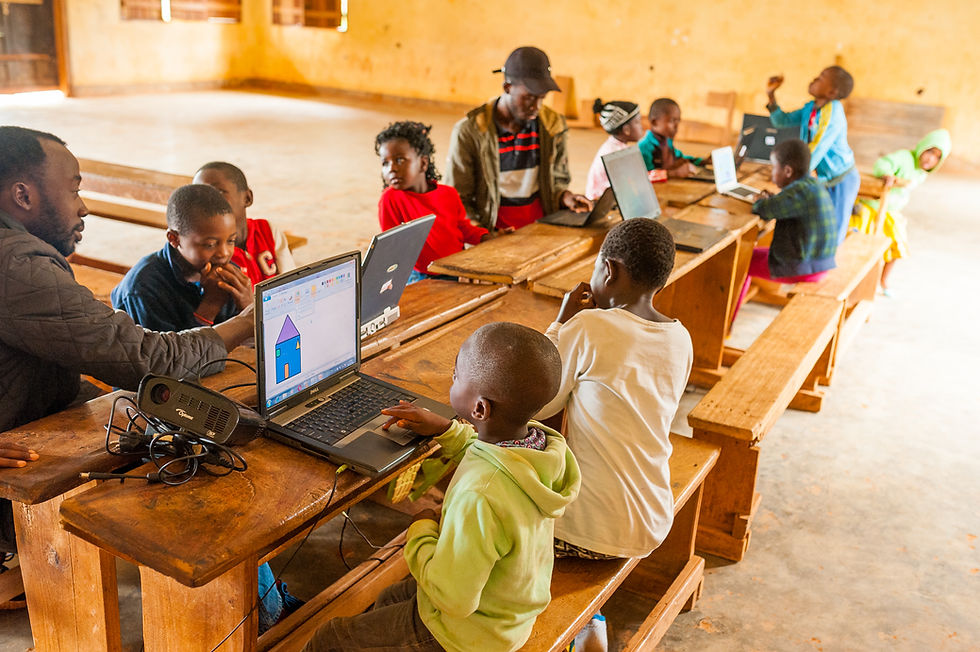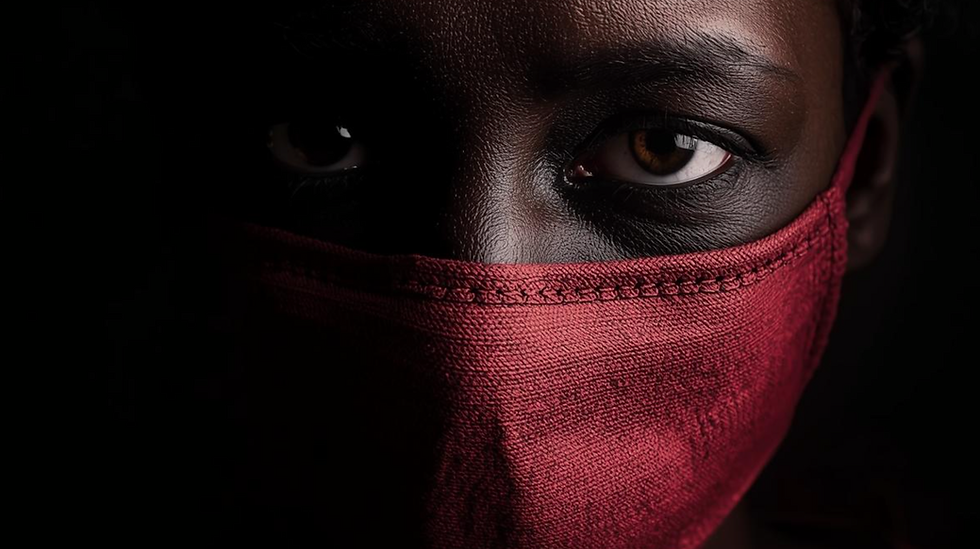The Importance of Early Childhood Education in Cameroon
- Nikki Brown
- Mar 23, 2021
- 5 min read
Early childhood education refers to the education of children from birth to age 8, including both in-home and out-of-home settings. To many of us, the importance of early education in children is common knowledge, however, more studies are coming to light about which reveal the potential learning disparities between students who had the luxury of early childhood education and those who didn’t.
In Cameroon, like in many other African countries, early education is not commonplace for many families. Lack of investment in early childhood education across the continent is putting millions of children at a significant disadvantage before they even start school. In fact, only one in four children aged three to five currently attend some form of preschool in West and Central Africa, including Cameroon.

Early childhood education is being hailed as one of the secrets to helping developing countries like Cameroon to become more prosperous and help people to break out of the cycle of poverty. However, with access to education limited and multiple barriers faced by many children and families, it’s not easy. The irony is, in communities where ECE would have the most significant impact, there simply isn’t the funding or the teachers to make it a reality.
Africa faces having an increasing share of the world's out-of-school and uneducated young people. By 2030 Africa will have one-third of the world’s children but 70% of its out-of-school population. Having a population that is lacking in skills and opportunity will mean that around 90% of the world’s poorest people will be in Africa. Therefore, the Sustainable Development Goals agreed by world leaders have set a target to ensure that all girls and boys have access to quality early childhood development, care and pre-primary education by 2030.
However, to truly understand the importance of early childhood education, we’re asking what are the real benefits and why is it so important for young children?
Prepares children for school
Most obviously, early education prepares children for going to school. Going to school is a significant event in a young child’s life and means a complete change in environment, routine and lifestyle. Early education plays a role in ensuring that children are used to leaving their families and being placed in structured learning environments by the time they reach school age. ECE also helps children to learn to follow instructions and share the teacher's attention, which will give them a vital foundation for when starting school properly at the age of five.
Critical for development
Studies show that 90% of critical brain development happens before the age of five. The young brain is like a sponge and having access to education early in life means they stand more chance of absorbing information and developing critical skills from learning to read and write to socialising and mixing with others. Early years are the best opportunity for a child’s brain to develop the connections they need to be healthy, successful adults with the ability to solve problems, motivate themselves and communicate clearly.

Break the poverty cycle
Studies report that children from the poorest families learn approximately 30 million fewer words by age three than those from more affluent families, which is a concern for children living below the poverty line. Early education can give children the fundamental skills they need to succeed at school, which can help them and their families to break out of the poverty cycle later down the line. Of course, it’s thinking a long way ahead. However, early education can be vital in preparing a child for the future and ensuring they have the skills needed to one day build a successful career that can help them live a better life.
Creates an enthusiasm for learning
Early access to education can create an enthusiasm for learning among children. If they’re taught through fun and engaging activities at an early age, children will become hungry to learn and be more enthusiastic pupils, setting them up for a more successful school career. This enthusiasm could make a difference for a child when it comes to planning their future careers. It could motivate them to attend university and form a career for themselves. It will also help children to learn the true value of education as from an early age they’ll be able to apply their knowledge to real-life situations.

Allows children to socialise
Often, young children only mix with their family or close friends of the family. In Cameroon when children are being raised below the poverty line, it’s likely that their family are also busy working and running the family home. Therefore, access to early education can be a vital chance for children to socialise and interact with others their own age. This means they can build relationships as well as learn vital life skills like communication, sharing and cooperation. Early education is a great place for children to meet new people and also to learn social values, to understand how to interact with others and take into account their feelings. It’s not only about seeing new faces but learning how to behave around other people.
Benefits the wider society
The more children that receive an education, the more a community benefits. In countries like Cameroon, only 75% of children complete primary school, while only 45% finish secondary school. If the studies are to be believed, the more children who have access to ECE, the more will complete their education. In the simplest terms, this means more career prospects and less poverty for future generations. The more qualifications a child has, the better their prospects; they’ll be able to go to university and get better, more well-paid jobs. This can also lead to more doctors, nurses, lawyers and teachers amongst the community, benefiting Cameroon for many years to come.
Sponsoring a child is one way that you can help them to access education and change their lives. Your support will help them to socialise, develop new skills and gain an education that could one day help them break out of the poverty cycle. By sponsoring one of our younger children, you’ll be helping to create a foundation for the rest of their lives, helping them to develop vital skills and creating a hunger for education and learning which can fuel them for many years to come.

To sponsor a child with us, help to change a girl’s life and fight gender inequality, take a look at our children currently searching for sponsorship and get in touch with our team today.
You can also help us raise awareness for our work by following us on social media, you’ll find us on Facebook, Twitter, Instagram and LinkedIn. Plus, you can sign up for our newsletter to make sure you never miss an update about our work. Our volunteers work to find sponsors. They also help the children to access safety, education, nutritious food and basic health and safety.




Comments